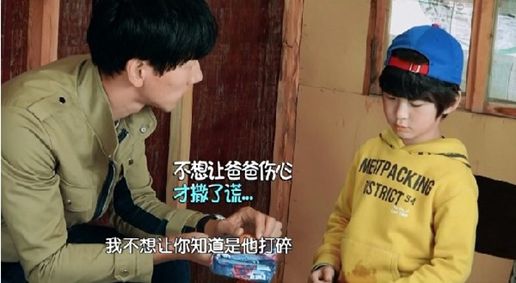— by Mr. Orange.
Like most domains of human civilization, those that reside within the confines of the Great Firewall are slaves to televised programming.
Hoards of shows hit screens on a daily basis, providing the nation with as much content as they need to while away their days.
One subset of this are reality TV shows.
Despite heavy competition from historical dramas and fluffy idol serials,reality shows have managed to carve themselves a sizable chunk of the televised pie.
However, unlike much of their western compatriots, Chinese reality shows rely solely on the participation of celebrities. This in turn helps bring in much welcomed advertising funds from companies that pay to have their products woven heavily into the narrative.
But rather than tackling the dilemmas that arise from the use of product placement or the more traditional forms of audience manipulation, today we take a look at other techniques used by show makers as their attempt to shape the views of their audience.
The first and most noticeable technique is the use of on-screen captioning.
Adopted from their Japanese and Korean counterparts, reality shows in China use this method to aid viewers in their understanding of what they see and to present context where it lacks.
However, they also use this method to nefariously manipulate narrative towards a direction that fulfills their needs. This often means that participating celebrities are made to look compassionate and relatable — a conclusion that the viewer may not come to if left to their own devices.
Take the following as an example:
In the show Where Are We Going, Dad?《爸爸去哪儿》, where celebrity fathers take their children to different locations and take part in various challenges, often there will be a scenario in which the father is upset with his child for behaving in an undesired manner.
During this time, the camera will cut from the angry father to his child. Words will pop up next to the child to tell viewers how they are feeling. The most common ones are phrases such as "I was wrong" or "Sorry Dad" or "Please don't be angry".
Now while this may seem harmless, the viewer should not take these captions as an unflappable authority. Their words do not represent the truth. Instead they are the carefully crafted notions that the show is trying to impress upon their audience.
Would viewers come to the same conclusion even without the appearance of on-screen prompts?
Possibly. But really that's beside the point.
We're not saying that Chinese reality TV is infringing on the possibility of free thought. But we're not not saying that.
The other method that Chinese reality TV seem to be appropriating is fairly new — the use of cartoons.
These small sections of animation may seem to be innocuous at first, but, in fact, serve a more important purpose.
With the use of cute, whimsical cartoon figures interacting with the scenery, the show is attaching certain meaning to landscapes which would otherwise not have them.
A mountain becomes a symbol for heaven with the inclusion of a flying angel. High rises become a fun playground when overlapped with King Kong. A garbage truck becomes a vehicle from the future when flames are added to its rear.
While the effect of cartoons may seem minimal and may work to enhance the experience for viewers, it must be noted that many Chinese reality shows take place in locations that rely on positive marketing to attract tourists.
Take the show Happy Sunday《两天一夜》, an outdoor competition and traveling TV show copied from its Korean counterpart, for example. They shot their first season in 2013 in the cities of Langzhong and Guangyuan, Sichuan Province. Tourism in these two places, which had previously been stagnating, suddenly saw increases in 21% and 41% respectively in 2014.
Therefore, instead of forming their impressions of a particular village or city, the audience is encouraged to see the show's version of the location.
This method can be seen as just a part of the evolution of modern advertisements. However, from juxtaposition of a blissful family of three and a beautifully decorated and — needless to say —expensive piece of real estate, to the happy singing and clapping of passengers in a brand-new car model, the art of choreographed association has become less and less direct. On the other hand, simply adding purposeful cartoons to an image couldn’t be more effortless and straightforward. Here, it is not difficult to sense the confidence of reality show makers in their absolute power to shape viewers’ perceptions.
There is one final method that we will examine here and it is, perhaps, the most subtle.
Those unfamiliar with Chinese programming should be aware that the presence of subtitles is normal practice. These serve to not only help regular viewers but also those with hearing difficulties, and is a practice that should be lauded.
However, on rare occasions, what the viewer hears and what they see are found to be in conflict. Much of the "corrections" found in the subtitling can be deemed to be grammatical in nature. Others serve to contextualise what has been said. Then there are the ones that are the show's attempt to interpret the speaker.
And there are problems with each of these uses.
On many levels, this type of editing is a method to ensure that the speaker conforms to a particular ideology. Whether this is due to business interests or regulatory pressure is beside the point. However the more subtle play at work is how it shapes the audience's impression of both the speaker and subject.
The clearest examples can often be found in shows that involve cooking. One person will ask another for their opinion on a particular dish and that person will reply with an ambiguous expression. The subtitles will say something along the lines of "very tasty", but the face made suggests that it was not be as simple as that. The show is telling the viewer that the individual enjoyed the food and is trying to limit the possibility of other perceptions.
Here is another example. Imagine a man saying "I saw him exit house and run away" but the subtitles read "I saw him exit the house and then run away". Although there is only a difference of two words and the meaning still remains the same, our perception of the speaker changes. The man transforms from someone who speaks somewhat imprecisely and informally to an orator with grammatical prowess.
With all this in mind, it is important to note that the point to make isn't how these techniques should be banned and its practitioners flayed. Methods to manipulate audiences have been used throughout history and these current forms will continue to evolve as time passes.
What is critical here, is the awareness of such behaviour and acting appropriately after the fact because the fault cannot be placed solely at the feet of show makers. Consumption of mass media has long since devolved into a vehicle for the passive. Critical thinking for audiences is no longer a priority as they descend further and further down the path of alienation.
A show that challenges viewers will often not attain mass appeal, thus making it harder for similar ventures in the future. Chinese TV producers have figured out that by force feeding narratives and opinions, they can not only satisfy the powers that be, but also fulfill the needs of an audience that, on some level, are agnostic to the idea of critical thinking.
After all, who doesn't want to kick back in a comfortable sofa, release their mind after being exhausted by a day’s work, and watch vapid TV shows. We are not saying that viewers should stay alert and maintain high functioning brain operations all the time, just that we should be aware of when we are being lazy and therefore more vulnerable.
Imagine being told that Restaurant A has the best burger in the world. You go to that restaurant and eat that burger and thoroughly enjoy it. Then, you decide that the burger was amazing, nothing else can compare and you recommend it to everybody else in the same way.
But is that really true? Is it really that burger that makes you think so or the preinstalled comment? And who gave that comment and recommendation?
After all, opinions should be formed from within and not taken from without.


